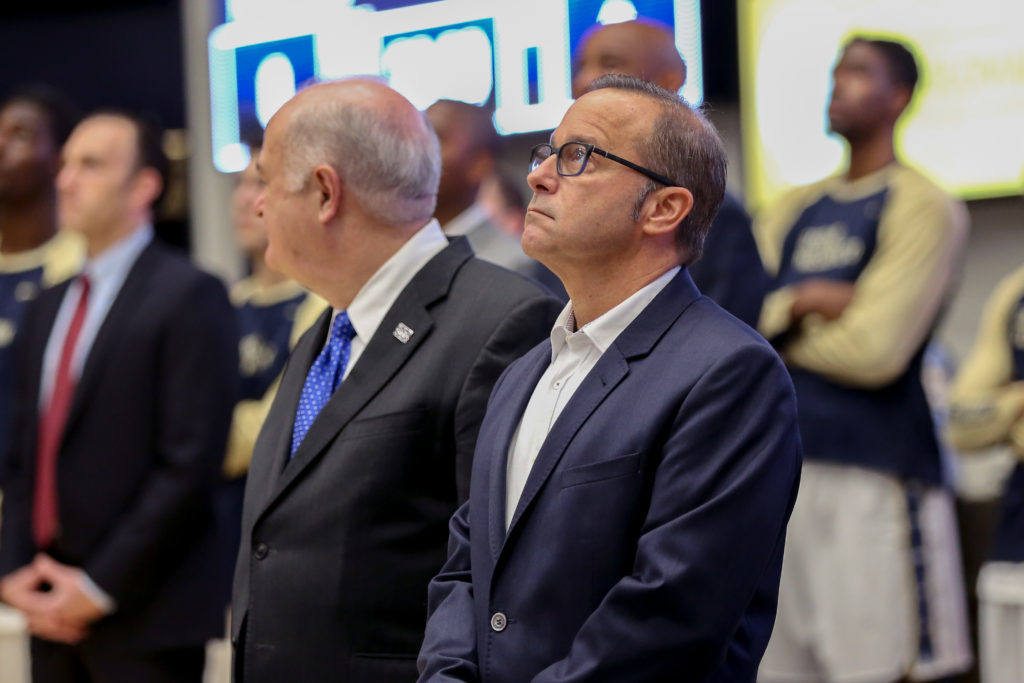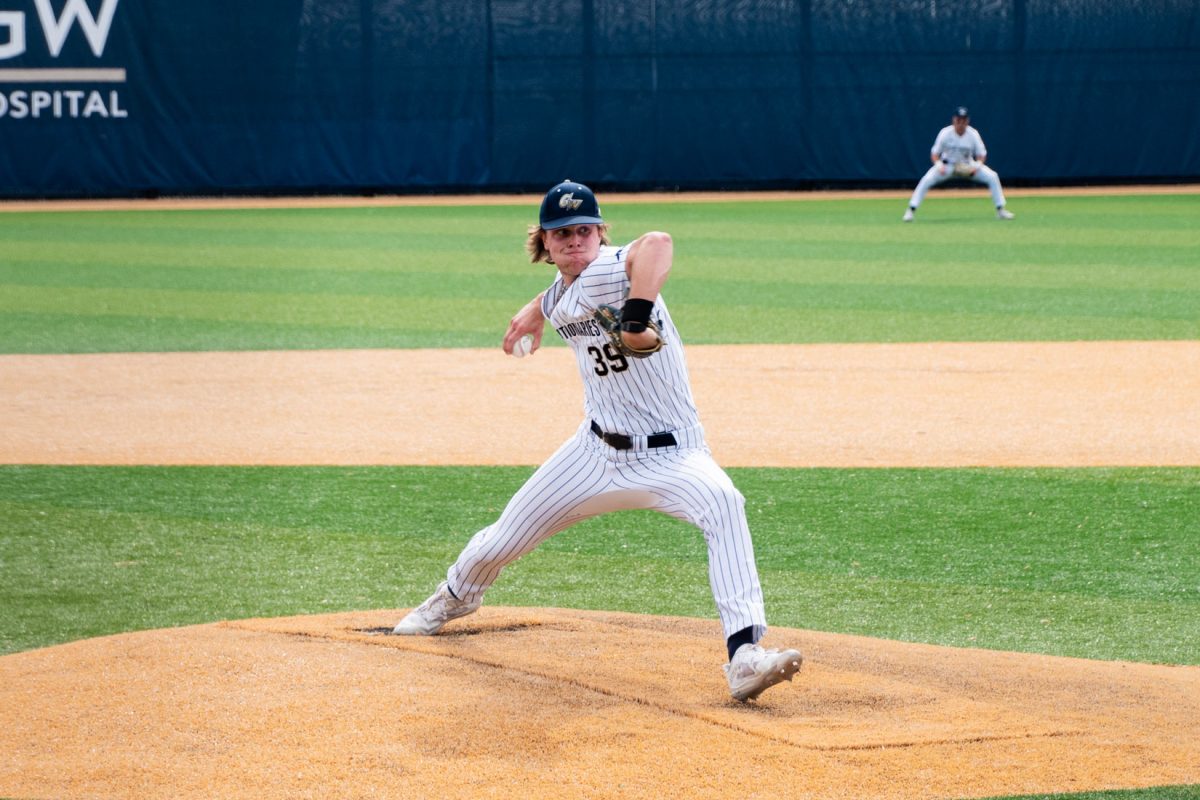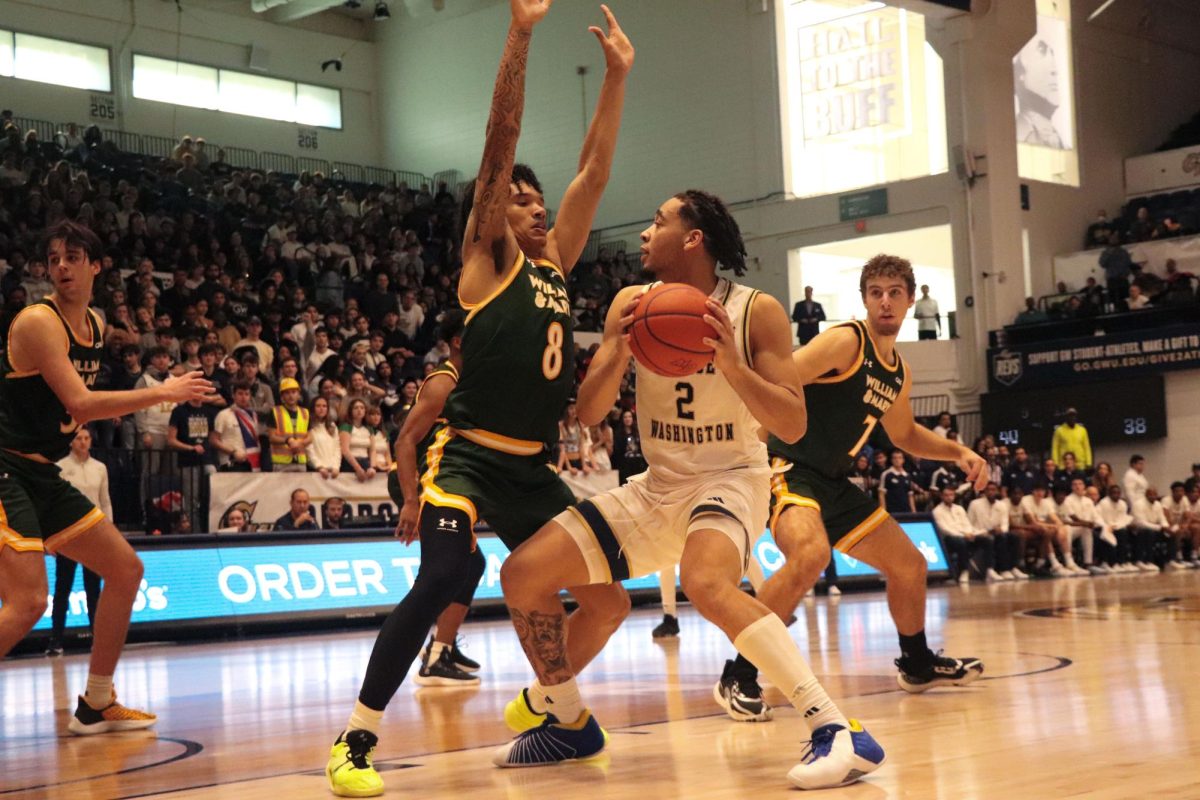A federal workplace discrimination agency is suing GW after an employee claimed the athletic director paid her about $40,000 less annually than a male coworker in a similar position.
The U.S. Equal Employment Opportunity Commission filed the suit after Sara Williams, the former executive assistant to the athletic director, submitted a complaint alleging the University violated the Equal Pay Act and Title VII — which prohibits employee sex discrimination, according to a complaint filed in D.C.’s U.S. District Court Tuesday.
Workplace discrimination experts said these lawsuits are rarely filed by the EEOC, a federal group responsible for enforcing employment discrimination laws, and only come after the commission conducts their own investigation. The EEOC filed five suits nationwide citing Equal Pay Act violations in fiscal year 2016, according to the commission’s most recent data.
The EEOC alleged that Williams made at least $39,000 less each year than a male employee with a “substantially equal” position while working for athletic director Patrick Nero between August 2014 and December 2016. Williams was then discouraged from applying for a higher-paying job after being told by University personnel it was created explicitly for the male coworker, according to the complaint.
The EEOC is requesting the court order GW to end all discriminatory practices against women, including those related to compensation and business opportunities. The commission also wants the University to pay back wages, benefit losses and damages to Williams in an amount that will be determined at trial, according to the complaint.
“Defendant has unlawfully discriminated against Charging Party by failing to provide her with promotional opportunities, subjecting her to disparate terms and conditions of employment and depriving her of employment opportunities and advancement because of her sex,” according to the complaint.
University spokeswoman Maralee Csellar declined to comment on the specific case, citing a University policy not to comment on pending litigation, but said the University had not been served the complaint by the EEOC as of Thursday.
“GW is a very high-profile, visible defendant. If the EEOC is successful, it will be an example to other employers.”
“It is important to note that complaints filed in court represent only one side of the story,” Csellar said in an email. “The University will respond as appropriate.”
The Hatchet also reached out to Nero through an athletic department spokesman, who referred to Csellar’s statement.
Kimberly Smith-Brown, the director of communications for the EEOC, said in an email that filing cases is “usually a last resort.”
Smith-Brown referred to a statement released by the commission Wednesday about three suits filed by the group last week regarding pay discrimination in the D.C. area.
“The law is clear – women must be paid the same as men for equal work, unless the employer can justify the difference in pay,” Mindy Weinstein, the acting director of the EEOC’s Washington Field Office, said in the release.
Williams, who is currently employed as an associate in GW’s Business Management and Analysis Group, did not return multiple requests for comment. She began working at the internal management consulting group in December 2016, according to its website.
Before the lawsuit was filed, the University received notice that an employee submitted a complaint to the EEOC, according to the complaint.
The commission sent a letter to GW April 21 to inform the University that its investigation into the allegations found “reasonable cause to believe” the law was violated and requesting informal discussions to “eliminate discriminatory practices and to provide appropriate relief,” according to the complaint.
EEOC investigations often last numerous months and include receiving a written response from the defendant, interviewing witnesses and obtaining documents, according to the commission’s website.
The University and the commission could not reach a conciliation agreement, causing the EEOC to issue a notice July 19 for failing to satisfy the commission, the complaint states.
The EEOC resolved 1,201 cases for Equal Pay Act violations in fiscal year 2016. The commission determined that there was reasonable cause for violation in 57 of those cases, 30 of which couldn’t be resolved after negotiations, according to the commission’s website.
If a negotiation is not successful, the commission’s legal staff will determine whether a lawsuit will be filed, according to the EEOC website.
Patricia Wise, an attorney at Niehaus Wise & Kalas and an employment law expert, said the fact that the EEOC brought the lawsuit adds credibility to the allegations because of the extended investigative process beforehand.
“It means that they believe there is a possibility for success, and that Ms. Williams has a credible claim,” Wise said. “GW is a very high-profile, visible defendant. If the EEOC is successful, it will be an example to other employers.”
The University hired Williams in August 2014. She was paid between $38,500 and $40,000 per year, according to the complaint.
In September 2015, Michael Aresco began working in the administrative suite of the athletics department for the first time as an administrator, the complaint states. Aresco, who is no longer employed by GW, previously worked as the assistant athletic director for operations, events and facilities, according to an archived version of the department’s website.
The complaint states that Nero required Williams to train Aresco and complete tasks that Aresco “either failed to perform or was incapable of performing.” Aresco gained employment opportunities that furthered his career through his promotion, while Williams completed tasks like running personal errands, according to the complaint.
“Retaliation is a very real concern for employees who file discrimination lawsuits against their employer.”
“Nero’s favorable treatment of Aresco was part of his pattern of using power granted to him by Defendant to gain access, and provide preferential treatment, to males and to minimize and oppose those who are entitled to equal treatment or do not support his inappropriate or discriminatory conduct,” according to the complaint.
Aresco did not return multiple requests for comment.
The University posted a job opening for a special assistant to the athletics director in January 2016 to “provide high-level administrative support” for Nero, the complaint states.
The complaint alleges that University personnel dissuaded Williams from applying to the job, saying that the position was created for Aresco. Aresco was selected to fill the position that month.
As the special assistant, Aresco was paid about $77,500 plus pay raises, according to the complaint.
The EEOC claims Williams should be compensated for “pain and suffering, emotional distress, indignity, inconvenience, loss of enjoyment of life, loss of self-esteem and humiliation, in amounts to be determined at trial,” according to the complaint.
Including Nero, who was hired at GW in 2011, there are five men and seven women who currently work in the athletics department administration, according to the department’s website.
Maya Raghu, the director of workplace equality at the National Women’s Law Center, said although the EEOC only files a small number of lawsuits each year, similar cases are often resolved through settlement. She said retribution from the employer, although illegal, is “quite common.”
“Retaliation is a very real concern for employees who file discrimination lawsuits against their employer but remain employed there,” Raghu said.





